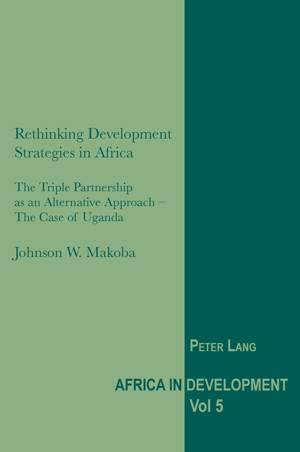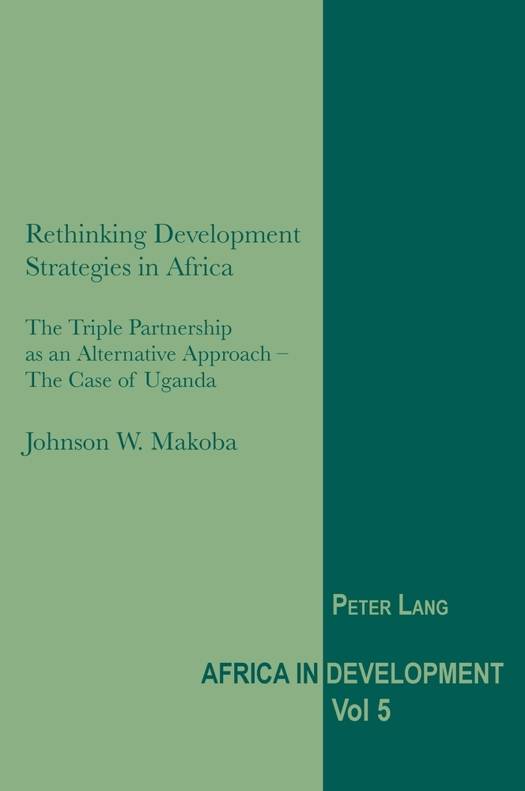
- Afhalen na 1 uur in een winkel met voorraad
- Gratis thuislevering in België vanaf € 30
- Ruim aanbod met 7 miljoen producten
- Afhalen na 1 uur in een winkel met voorraad
- Gratis thuislevering in België vanaf € 30
- Ruim aanbod met 7 miljoen producten
Zoeken
Rethinking Development Strategies in Africa; The Triple Partnership as an Alternative Approach - The Case of Uganda
The Triple Partnership as an Alternative Approach - The Case of Uganda
Johnson W Makoba
€ 63,95
+ 127 punten
Omschrijving
The author focuses on how development-oriented non-governmental organizations (NGOs) and microfinance institutions (MFIs) are suited to the dual development process of improving the wellbeing and empowerment of the poor and other marginalized peoples (especially women) in Africa and other developing countries, focusing on Uganda. NGOs and MFIs are seen as a third approach (i.e. an alternative to state or market strategies) to achieving sustainable development and poverty reduction. The author discusses the following central issues: rethinking development strategies in Africa as a result of the failure of the state or market to deliver economic growth and poverty reduction, and the rise of the NGO sector to fill the vacuum; clarification of the on-going confusion between MFI performance and impact assessment; the inadequacy of economic reforms in Uganda to benefit the rural agricultural producers; NGOs and MFIs in Uganda as part of the development strategy and their potential to spur development; the commercialization of MFIs and its implications; lessons from successful MFIs in Uganda and globally; and an analysis of how NGOs and MFIs working together with the public and private sectors (in a triple partnership) can achieve sustainable development and poverty reduction in Uganda and other African countries.
Specificaties
Betrokkenen
- Auteur(s):
- Uitgeverij:
Inhoud
- Aantal bladzijden:
- 272
- Taal:
- Engels
- Reeks:
- Reeksnummer:
- nr. 5
Eigenschappen
- Productcode (EAN):
- 9783039119486
- Verschijningsdatum:
- 25/10/2011
- Uitvoering:
- Paperback
- Formaat:
- Trade paperback (VS)
- Afmetingen:
- 150 mm x 221 mm
- Gewicht:
- 408 g

Alleen bij Standaard Boekhandel
+ 127 punten op je klantenkaart van Standaard Boekhandel
Beoordelingen
We publiceren alleen reviews die voldoen aan de voorwaarden voor reviews. Bekijk onze voorwaarden voor reviews.











